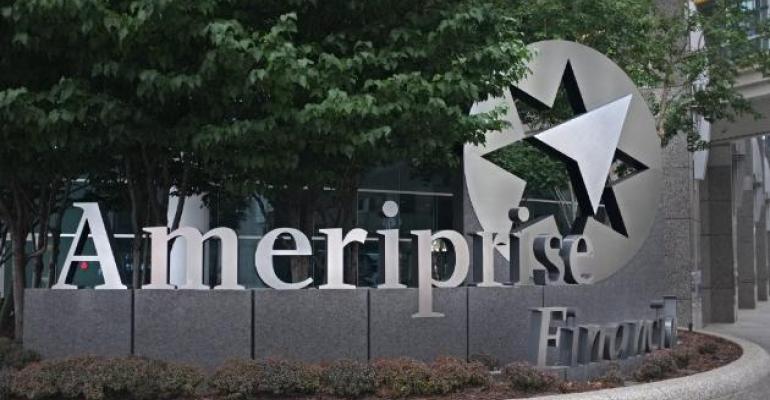Just a few weeks after launching its Share Class Selection Disclosure Initiative, the Securities and Exchange Commission has charged Ameriprise Financial Services for wrongly selling more expensive share classes of mutual funds to retirement plan customers and failing to waive those charges. The firm agreed to settle the charges, cease and desist and pay a fine of $230,000. Ameriprise also voluntarily paid back more than $1.9 million in fees, expenses and interest to the affected customers.
“Ameriprise generated greater revenue for itself but lower returns for its retirement account customers by recommending higher-fee share classes,” said Anthony S. Kelly, co-chief of the SEC Enforcement Division’s Asset Management Unit.
Between 2010 and 2015, Ameriprise recommended higher-fee mutual fund share classes in certain retirement accounts and failed to determine customers’ eligibility for less expensive share classes, the regulator claims. Nearly 1,800 customers paid $1.78 million in overcharges as a result.
“As pointed out in the settlement, Ameriprise voluntarily paid full remediation to clients, with interest,” said Kathleen McClung, an Ameriprise spokeswoman. “It’s important to note that this is a long-standing industry topic, and numerous firms have settled with the SEC and FINRA on similar matters.”
UBS was charged for a similar violation by the agency last October, in which some 15,000 customers paid $18.5 million in overcharges. The firm was ordered to pay a $3.5 million fine.
The SEC has made fee transparency a priority this year, focusing specifically on “business models that may create increased risks that investors will pay inadequately disclosed fees, expenses, or other charges.” That includes advisory personnel that may recommend certain mutual fund share classes with higher fees.
In fact, the enforcement division just recently launched its Share Class Selection Disclosure Initiative, where it will not recommend penalties against registered investment advisors who self-report violations related to share class selection and return money to affected clients. In the past, the agency has charged nine firms for failing to disclose these conflicts.
“A conflict of interest arises when an advisor receives compensation (either directly or indirectly through an affiliated broker-dealer) for selecting a more expensive mutual fund share class for a client when a less expensive share class for the same fund is available and appropriate,” the SEC said. “That conflict of interest must be disclosed.”





